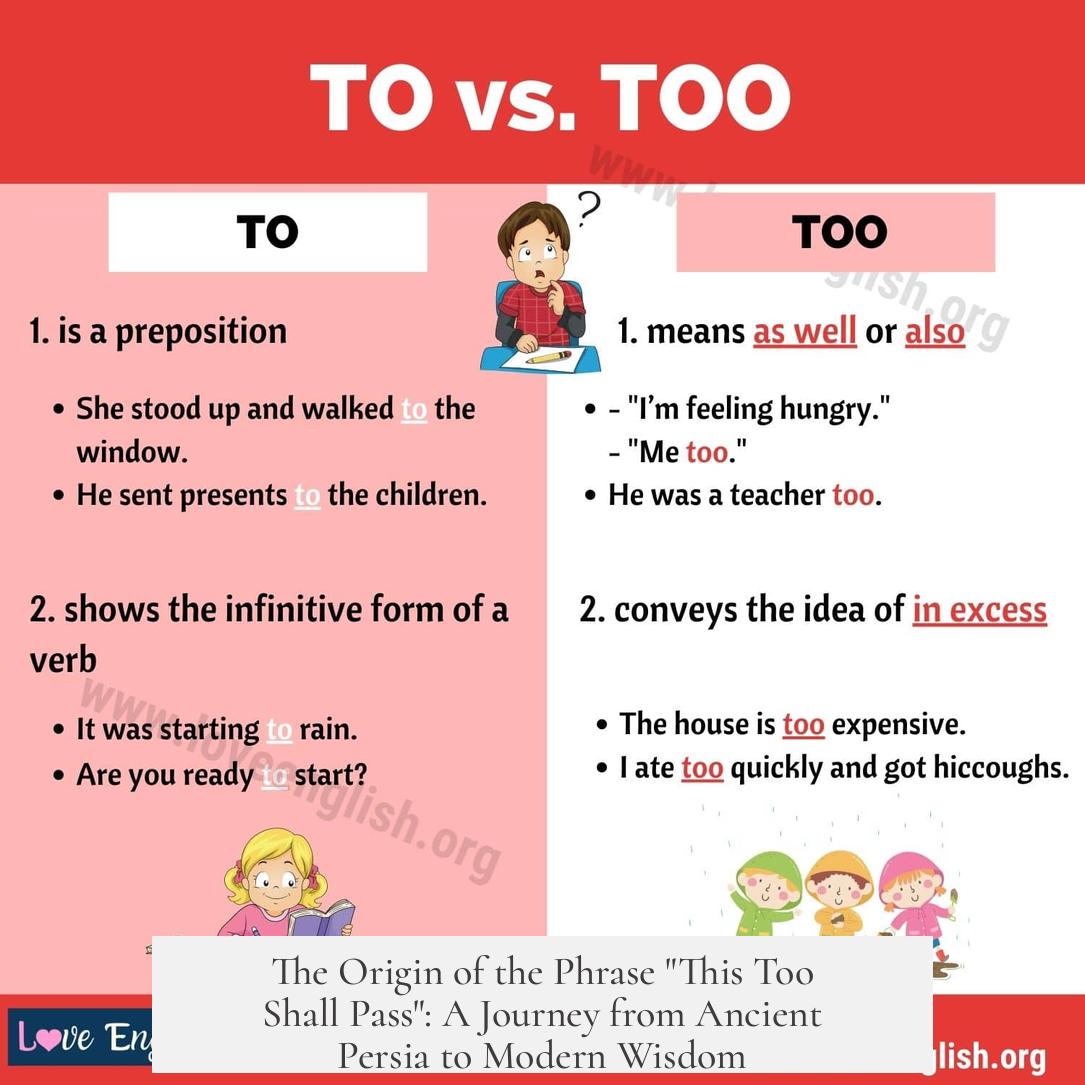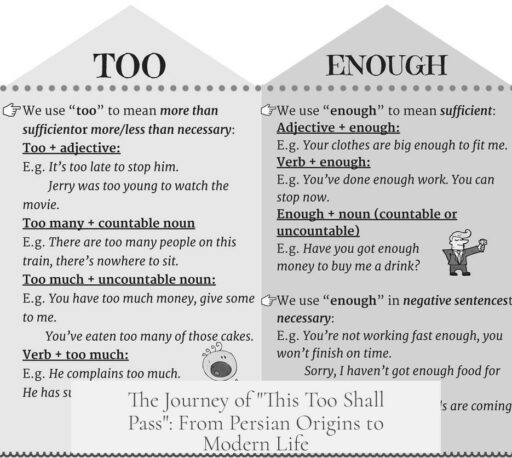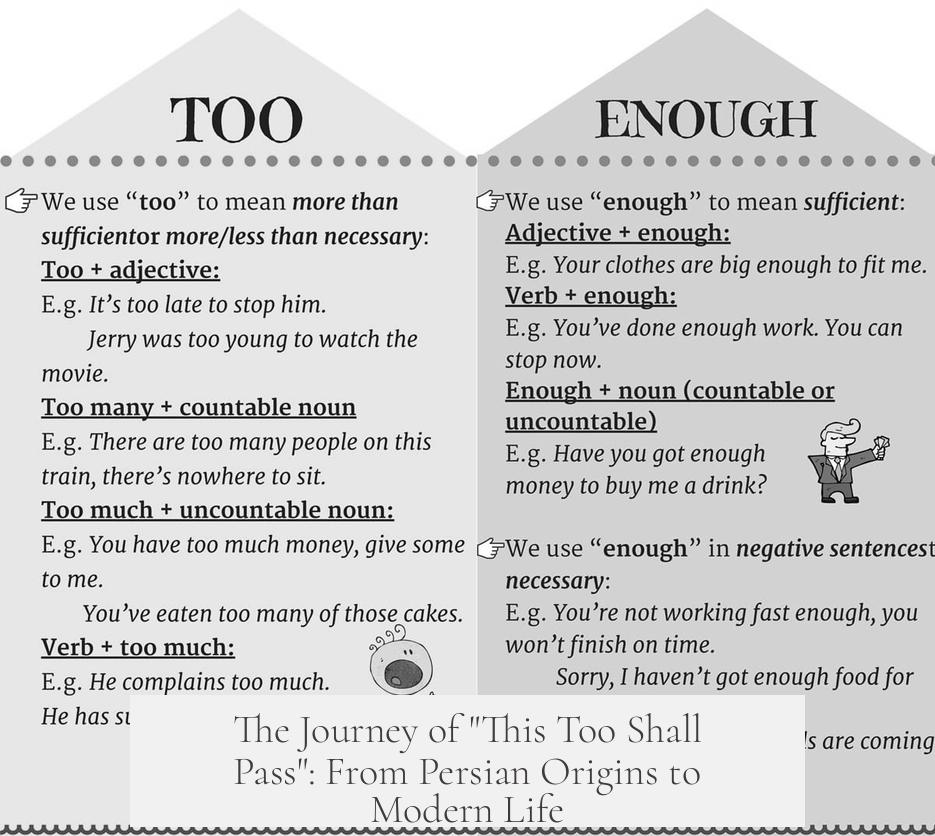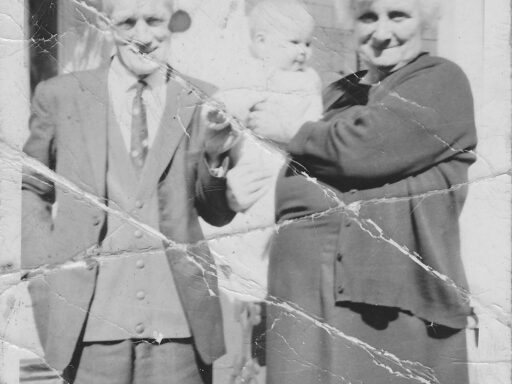The phrase “This too shall pass” originates from Persian culture, specifically the phrase ‘In niz bogzarad.’ It reflects a timeless message about the impermanence of both good and bad situations. The phrase’s modern popularity began in the mid-19th century when it appeared frequently in Western writings. Notable figures like Abraham Lincoln referenced a story involving an Eastern monarch who sought a phrase signifying truth and applicability in all circumstances. The wise men in the story presented the phrase, highlighting its power to humble pride and comfort sorrow.
The earliest documented appearances date back to about 1824 in Christian magazines. These sources mention a nameless “Eastern sage” or “Prince in India” who had a ring engraved with the phrase to remind the wearer of life’s changing nature. This imagery symbolizes the message’s use as a tool for reflection during adversity and prosperity.
The phrase has sometimes been linked to the Persian Sufi mystic Attar. However, there is no clear evidence that Attar wrote or coined it. This attribution likely stems from later traditions rather than verified texts. The phrase’s enduring association with Persian Sufi mysticism, however, emphasizes its spiritual and philosophical roots in that cultural context.
Earlier literary works reflect concepts similar to the phrase but are not considered direct origins. For example, the 10th-century Old English poem “Deor’s Lament” includes the line “Þæs ofereode, þisses swa mæg” (“That was overcome, this so may”), which shares the theme of transience but serves a different purpose—it encourages action rather than offering consolation.
- Phrase origin: Persian “In niz bogzarad.”
- Popularized mid-19th century in Western literature
- Linked to a story of an Eastern monarch and his wise men
- Early Western mentions from 1824, referring to an “Eastern sage” or “Prince in India”
- Attributed but not confirmed to Sufi mystic Attar
- Similar sentiments found in older texts, e.g., “Deor’s Lament,” but not the same phrase
The phrase “This too shall pass” serves as a reminder of life’s fleeting moments. Its history ties deeply to Persian culture and mysticism, gaining international recognition during the 19th century through literature and speeches.
The Origin of the Phrase “This Too Shall Pass”: A Journey from Ancient Persia to Modern Wisdom

What is the origin of the phrase “This too shall pass?” At first glance, it seems like a simple, comforting phrase, but its roots stretch back through centuries of history, culture, and philosophy. The phrase actually originates from Persian tradition, encapsulated in the ancient Persian expression In niz bogzarad, meaning “this too shall pass.” The words carry a timeless message about the fleeting nature of both joy and sorrow.
While many might think the phrase popped up in English literature or folklore, its true origin is much older and richer. Let’s delve into its fascinating past.
From Persian Wisdom to Global Fame
The phrase’s core lies deep in Persian culture. Persian scholars and mystics have carried this idea for centuries, embodying a worldview that views life’s ups and downs as transient. But you might be wondering: where exactly did it first surface in literature or oral tradition?
Interestingly, there’s an echo of this sentiment in the 10th-century Old English poem Deor’s Lament. The poem uses a line—Þæs ofereode, þisses swa mæg, which roughly means “That was overcome, this so may [be].” While similar, this phrase serves a different purpose. It’s active, urging perseverance and action. It’s not the quiet consolation to remind someone that their troubles will eventually fade, as our phrase does.
So, the Old English poem might have offered a distant cousin to the phrase, but it’s not the phrase itself.
A Sultan, a Ring, and Universal Truth
The phrase’s journey into Western popular consciousness bursts forward around the mid-19th century. Numerous Western writers, including the famous Edward FitzGerald and even Abraham Lincoln, introduced a tale of an Eastern monarch or sage who demanded a phrase to live by—one true in every circumstance. The answer given was the phrase we know: “And this, too, shall pass away.”
Ever wondered why Abraham Lincoln referenced it? In a speech, Lincoln recalled this tale to illustrate how the phrase expresses humility in times of pride and consoling comfort during hardship. It seems this simple yet profound sentence helped a nation leader in difficult times—and it can help us today too.
The earliest printed examples in English appear in Christian magazines from the early 1800s. In 1824, a publication credited an anonymous “Eastern sage or Prince in India” with crafting a ring inscribed with the phrase, meant for use in both adversity and prosperity. A ring, you say? The metaphor is perfect—life’s highs and lows wrapped around your finger, a permanent reminder that nothing is forever.
Attributing the Wisdom: Did Attar Really Say It?

Fair question: who exactly coined this phrase? Among many attributions, the name of Attar—a renowned Persian Sufi mystic and poet—often crops up. Attar’s mystical tales and spiritual teachings deeply influenced Persian culture and likely contributed to the phrase’s mystical aura.
But here’s a curveball: modern researchers have struggled to find the phrase explicitly in Attar’s authentic works. This points to a likely apocryphal attribution—meaning the phrase was probably “borrowed” or retroactively assigned to him later, because his reputation fits the phrase’s tone.
Still, the Sufi mystics’ general tradition of emphasizing life’s impermanence and turning to inner peace aligns perfectly with the phrase’s essence. It’s safe to say the phrase draws heavily on Persian Sufi spiritual philosophy, even if the exact source remains a bit elusive.
Why Does This Matter to Us Today?
Understanding the phrase’s origin helps us appreciate its depth. It’s not simply a cliché for tough days. It’s centuries of wisdom condensed into four words. This phrase helps us frame our experience and emotions in a way that encourages resilience. Life is transient. So are our struggles.
If you’re facing a hard moment, remembering “This too shall pass” can soothe your mind. It’s a nudge that time transforms everything—good or bad. Imagine wearing that metaphorical ring yourself. It’s a piece of advice passed down through poets, mystics, kings, and presidents.
Practical Tips for Using This Wisdom
- Remind yourself daily: Repeat the phrase in your mind each morning or during stress. It can keep perspective in sharp focus.
- Create a physical token: Some people wear jewelry engraved with “This too shall pass” to carry the reminder everywhere.
- Share the phrase: Use it to comfort friends or family members going through tough times.
- Reflect on impermanence: Use journaling to explore times you overcame difficulty, reminding yourself that nothing lasts forever.
Final Thoughts: A Universal Truth Wrapped in Simplicity
The phrase “This too shall pass” is much more than a handy comfort expression. It’s a rich tapestry woven from Persian mysticism, historical anecdotes of kings and sages, and powerful modern usage. It captures a universal truth recognized across cultures and centuries: life is change, and in that change lies hope.
So, next time life throws a curveball, recall the words of an ancient Persian ring. They may guide you with unexpected strength.
“It is said an Eastern monarch once charged his wise men to invent him a sentence, to be ever in view, and which should be true and appropriate in all times and situations.” — Abraham Lincoln




